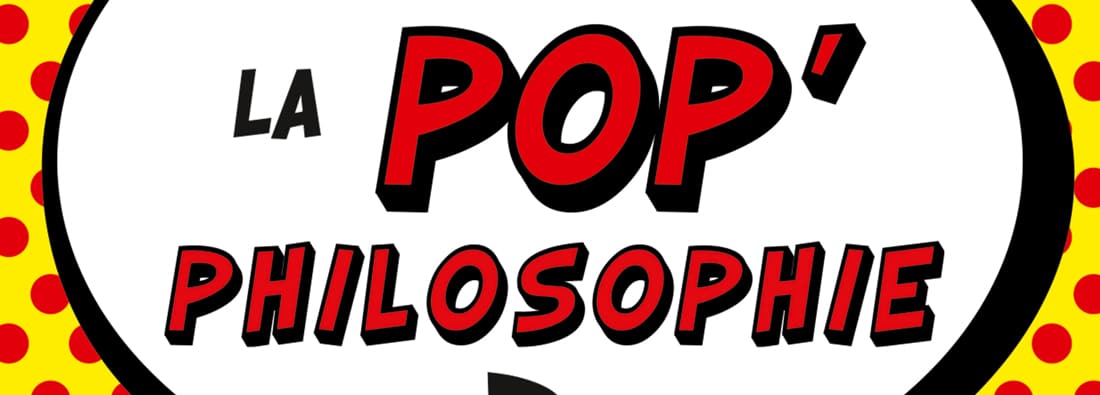What is pop’philosophy?


As Laurent de Sutter explains in Qu’est-ce que la pop’philosophie? the genesis and late fortune of this concept coined by Gilles Deleuze in the 1970s, “pop’philosophie is the philosophical practice of transforming anything into something” (p. 31). But more than just a concept, it’s another way of philosophizing: “what we’re talking about, in practicing pop’philosophie, is making sure that anything is no longer anything, while nonetheless remaining anything – that anything ceases to be, in the literal sense, anything, i.e. almost nothing” (p. 32). In other words, Gilles Deleuze proposes a different way of experiencing the world, a different use and a different way of looking at everyday objects.
Pop’philosophie, which Deleuze dreamed of realizing one day, although he wasn’t sure he’d succeed, is intended to enable us to “get out of philosophy through philosophy”[1], i.e. “to work so that philosophy goes out to meet an outside such that its knowledge proves incapable of apprehending it and demands that it transform itself” (p. 41). Philosophy must confront the outside, and allow itself to be transformed by it. In contrast to philosophy, which uses the things of the world to nourish the theoretical knowledge it gargles in, pop’philosophie refuses to consider everyday objects as mere illustrations of concepts, or even as mere matter for thought. Pop’philosophie, in this sense, is “that by which philosophy rejects that which, in it, allows it to be always right; it is the becoming-dead of philosophy” (p. 95).
Through the concept of pop’philosophie, Gille Deleuze offers a glimpse of a philosophy that is not only rooted in reason (for Deleuze, philosophy can be defined as the creation of concepts[2]), but also leaves room for the emotions – “philosophy once it has consigned to the closet its pretensions to cold rationality, to argued explanation, to fine comprehension, to logical interpretation” (p. 100-101). The pop philosopher must make the effort to transmit the work of thought with an intensity similar to that of popular culture, whether it be the intensity conveyed in a concert hall or in front of a cinema screen.
Among the first to take up the concept of pop’philosophie were the authors of Matrix, machine philosophique, a collective work published in 2003 and devoted to the Wachowski brothers’ trilogy. But a perusal of Laurent de Sutter’s bibliography reveals that he himself has explored this outside world that Deleuze invites the philosopher to confront, whether in Théorie du Kamikaze, Théorie du trou, Vies et morts des super-héros, or Pornostars: fragments d’une métaphysique du X, works available in hard copy on the Riponne and/or Unithèque websites.
To find out more :
La pop’philosophie, RTS broadcast 07.02.2019
Diakritik, From Matrix with love and Un philosophe, three interviews with Laurent de Sutter
Maël Goarzin
Head of philosophy and psychology collections, BCUL site Unithèque
[1] Arnaud Bouaniche, Gilles Deleuze, une introduction, Paris, Pocket, 2007, pp. 297. Available in print on the Unithèque website.
[2] Gilles Deleuze, Qu’est-ce que la philosophie, in collaboration with Félix Guattari, Paris, Les Éditions de Minuit, 1991. Available in hard copy on the Unithèque, Renens and Provence sites.